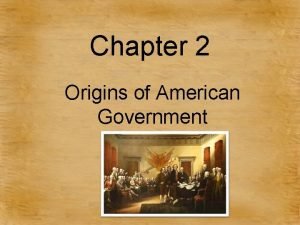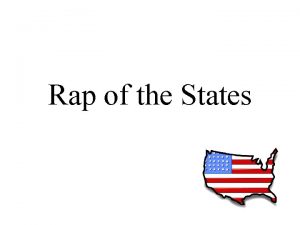Imperial Wars and Colonial Protest America on the
















- Slides: 16

Imperial Wars and Colonial Protest America on the Verge of Revolution 1754 -1774

Essential Question In what ways did the French and Indian War alter the political, economic, and ideological relations between Britain and its American colonies?

Empires at War Great Britain, France, and Spain The First Three Wars King William’s (1689 -1697) French attack on NY Queen Anne’s (1702 -1713) Treaty of Utrecht (1713) King George’s (1744 -1748) Capture of Louisburg

Causes of the Seven Years’ War French Forts in the Ohio River Valley Virginia militia (Washington) called in Role of Half-King Fort Necessity forced to surrender (1754) Braddock Expedition (Fort Duquesne) Albany Plan of Union (1754) Importance of Iroquois

Image Analysis: Colonial Unity? C – Context? A– Audience? P – Purpose?

Events of the Seven Years’ War Lord Pitt, Prime Minister Recapture of Louisburg (1758) Surrender of Quebec (1759)

The Death of Wolfe

Results of the Seven Years’ War Treaty of Paris (1763) British View France Loses Almost all Colonial Possessions Britain Dominant Naval Power Contempt and low opinion for the colonies Colonial View Proud of military performance Shattered myth of British invincibility

Reorganization of the British Empire Effect of War on British Economy Desire to tax the colonies Legacy of Salutary Neglect Pontiac’s Rebellion (1763) Proclamation of 1763

Causes of the American Revolution British Actions and Colonial Responses (1763 -1776)

Questions for Debate Evaluate the relative importance of three of the following as factors prompting Americans to rebel in 1776: Parliamentary Taxation Denial of Political and Civil Liberties British Military Measures Salutary Neglect Evaluate the relative effectiveness of three of the following colonial responses to British Parliamentary policies and actions from 1763 to 1776: Boycotts Mob Violence Organizational Structures Propaganda

British Actions and Colonial Reactions New Revenues and Regulations Organizational Structures Sugar Act (1764) Quartering Acts (1765) Stamp Act (1765) House of Burgesses Patrick Henry’s Resolves Stamp Act Congress (NY) Sons and Daughters of Liberty Boycott Home manufacturing Tarring and feathering Repeal of Stamp Act and Introduction of Declaratory Act (1766)

Second Phase of the Crisis Townshend Acts (1767) Duties on tea, glass, lead, and paper Writs of Assistance New York Restraining Act John Dickinson’s Letters from a Farmer in Pennsylvania Renewal of Boycott The Boston Massacre (March, 1770) Repeal of Townshend Acts (1770) Tea tax remained

Renewal of the Conflict Committees of Correspondence (1772) The Gaspee (1772) Boston Tea Party (Dec. 1773) Tea Act of 1773 Coercive Acts (1774) Quebec Act (1774)

Philosophical Foundations of the American Revolution Legacy of Salutary Neglect Self-Government Religious Freedom Personal Profit/Gain Mercantilism vs. Capitalism Enlightenment Ideals Locke, Rousseau Social Contract Inalienable Rights

Effects of Pre. Revolutionary Period Political Economic Ideological Legacy of Self. Government Legacy of Salutary Neglect Desire to retain Individual Rights Foundations of State Sovereignty Move from Mercantilism to Capitalism Transition from identity as British to “American” Republican virtue
 Committees of correspondence
Committees of correspondence Letter of protest in shipping
Letter of protest in shipping Lesson 1 roanoke and jamestown answer key
Lesson 1 roanoke and jamestown answer key Lesson 1 roanoke and jamestown
Lesson 1 roanoke and jamestown Cudgeling sport
Cudgeling sport Origins of american government chapter 2
Origins of american government chapter 2 Lesson 3: the middle colonies answer key
Lesson 3: the middle colonies answer key Early american games
Early american games Colonial america jeopardy
Colonial america jeopardy Colonial america jeopardy
Colonial america jeopardy Colonial empires in latin america
Colonial empires in latin america Rap of the states
Rap of the states Europe asia north america south america
Europe asia north america south america Whats an onomatopeia
Whats an onomatopeia Why is latin america called latin america
Why is latin america called latin america Performance e body art
Performance e body art Chapter 14 the sixties a decade of protest and change
Chapter 14 the sixties a decade of protest and change






























